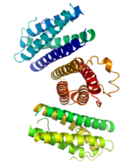Biosimilars
What makes physicians consider patients suitable for biosimilar infliximab
Prescribing physicians play an important role in the adoption of biosimilars in rheumatic diseases. Assessing physician perception of patients they consider as suitable for biosimilars may provide insights into eventual biosimilar adoption in clinical practice settings as well as any physician educational needs.
European oncologists back biosimilars with position paper
On 16 January 2017, the European Society for Medical Oncology (ESMO) published a position paper on biosimilars saying that ‘biosimilars create opportunities for sustainable cancer care’ [1].
EMA approval for rituximab biosimilar Truxima
The European Medicines Agency’s (EMA) Committee for Medicinal Products for Human Use (CHMP) announced on 16 December 2016 that it had recommended granting of marketing authorization for a rituximab biosimilar.
What internists should know about biologicals and biosimilars
Authors from the IRCCS Istituto di Ricerche Farmacologiche Mario Negri, Milan, Italy discuss some of the most frequent concerns raised by internists about biosimilars [1].
Benepali gains approval for extra indications
Samsung Bioepis, which is a joint venture between South Korean electronics giant Samsung and biotechnology company Biogen, announced on 16 December 2016 that the European Medicines Agency’s (EMA) Committee for Medicinal Products for Human Use (CHMP) had adopted a positive opinion for the extension of indications for its etanercept biosimilar Benepali
Biosimilars applications under review by EMA – December 2016
The European Medicines Agency (EMA) is the body responsible for approval of biosimilars within the European Union (EU). A legal framework for approving biosimilars was established in 2003. Approval of biosimilars is based on an abbreviated registration process, which allows biosimilars manufacturers to provide a reduced package of information compared to originator drugs, provided they can prove ‘similarity’ to the originator or reference drug.
Positive phase III results for adalimumab and trastuzumab biosimilars
Phase III studies of an adalimumab biosimilar from Momenta Pharmaceuticals (Momenta) and a trastuzumab biosimilar from Pfizer have, according to the companies, shown that the biosimilars are ‘equivalent’ compared to their respective originator biologicals.
Naming affects pharmacists’ perceptions and dispensing of biosimilars
A study of pharmacists, carried out jointly by the Academy of Managed Care Pharmacy (AMCP) and the Hematology/Oncology Pharmacy Association (HOPA), found that pharmacists had a preference for distinguishable names. However, the study also found that using the same names for interchangeable biologicals would make pharmacists more likely to dispense biosimilars [1].
EMA accepts application for pegfilgrastim biosimilar from Coherus
US-based biosimilars developer Coherus BioSciences (Coherus) announced on 29 November 2016 that its application for approval for its proposed pegfilgrastim biosimilar (CHS 1701) had been accepted by the European Medicines Agency (EMA).
Positive phase III results for Boehringer’s adalimumab biosimilar
Germany-based biologicals specialist Boehringer Ingelheim (Boehringer) announced on 26 October 2016 positive results from its pivotal phase III study of its candidate adalimumab biosimilar.













